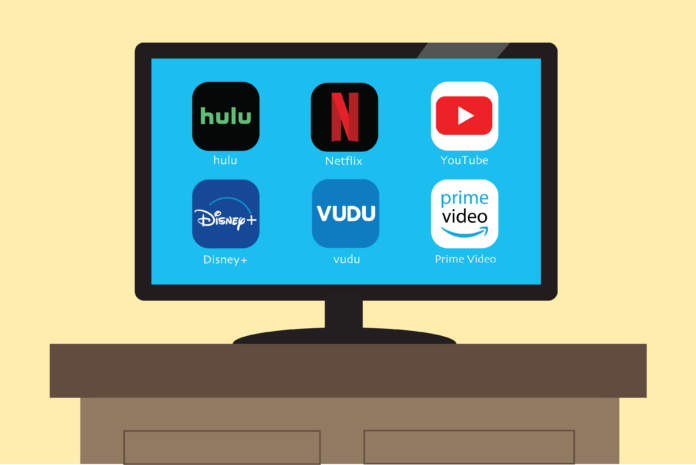Developments in how movies and visual media are consumed could mean the end of the industry as we know it
By GEETIKA MAHAJAN — giamahajan@ucdavis.edu
At Universal Studios, Hollywood, there is an attraction that allows park visitors to go “behind the scenes.” It’s essentially a tour of the soundstages and sets, interspersed with immersive experiences that recreate moments from films that the studio has produced. Visitors are chased out of a motel by Norman Bates and watch on as a shark emerges from the waters of Amity Island. These scenes — and the films that they are from — are iconic moments in cinematic history; for nearly 100 years, the American film industry has been a cultural landmark of epic proportions. However, this status may be diminishing. The increasingly profit-focused, machine-like production of movies in Hollywood and the rise of streaming services are contributing to the decline of the film industry as a whole.
When “Iron Man” came out in 2008, nobody could have predicted the domino effect that the movie would have on the film industry as a whole. Yet, nearly 10 years later, it’s increasingly obvious that the Marvel Cinematic Universe (MCU) has changed the way in which people view actors and the characters they play. Anthony Mackie, who stars in Marvel’s “The Falcon and The Winter Soldier,” commented on this phenomenon, explaining that, “[he] Anthony Mackie isn’t a movie star; the Falcon is a movie star.”
While in the past, people would often watch films because their favorite actors starred in them, now, it’s common for people to go to movies simply because they love a certain character or franchise, regardless of the quality of the movie. Because of this, rather than creating new and innovative stories for actors to star in, studios may focus on producing as many films as possible starring characters that they know will draw crowds.
On the surface, this may not seem like a bad thing; these characters mean a lot to people, so why shouldn’t they get longer, more in-depth storylines? The issue is that these films are not made with the characters in mind; they are primarily produced to draw large crowds to the box office. In fact, the characters themselves seem like almost an afterthought. Take “Black Widow,” released in 2021. The film came out after Scarlett Johansson’s character had already died in “Avengers: Endgame.” The film seems to abandon the original Black Widow storyline in favor of milking the character’s popularity for as long as there is a willing audience for them. Marvel’s method of churning out sequels and remakes has also infiltrated the rest of Hollywood. The Jurassic World Trilogy, for example, is a testament to the film industry’s ability to produce copy after copy of a movie that was originally successful.
However, it is not simply the rise of superhero movies and franchises that contribute to the decline of the industry. Streaming services have contributed to a focus on binge-ability, forgoing producing movies to focus on limited series. “The Queen’s Gambit” and “Squid Game,” two Netflix original TV shows, are examples of storylines that, a few decades ago, would probably have been written as movies. However, the series format is not without its perks — it offers more time for in-depth character development and for audiences to connect more deeply with the story.
This format seems to be increasingly popular when it comes to book-to-screen adaptations. “Shadow and Bone,” a Netflix original series that came out in 2021, was wildly successful with both original fans of the novel and new viewers because of how much time the characters were given to develop.
Due to the proliferation of limited series and the rise of franchises, there has been a decrease in the originality of movies being released in the modern day. It seems to me that studios are powerful enough to have total control over what stories are written and developed. This results in a strategy that milks previously-successful plotlines rather than focusing on storytelling and originality — which are the two components that made films from the “Golden Age” of Hollywood so enjoyable.
Written by: Geetika Mahajan — giamahajan@ucdavis.edu
Disclaimer: The views and opinions expressed by individual columnists belong to the columnists alone and do not necessarily indicate the views and opinions held by The California Aggie.





